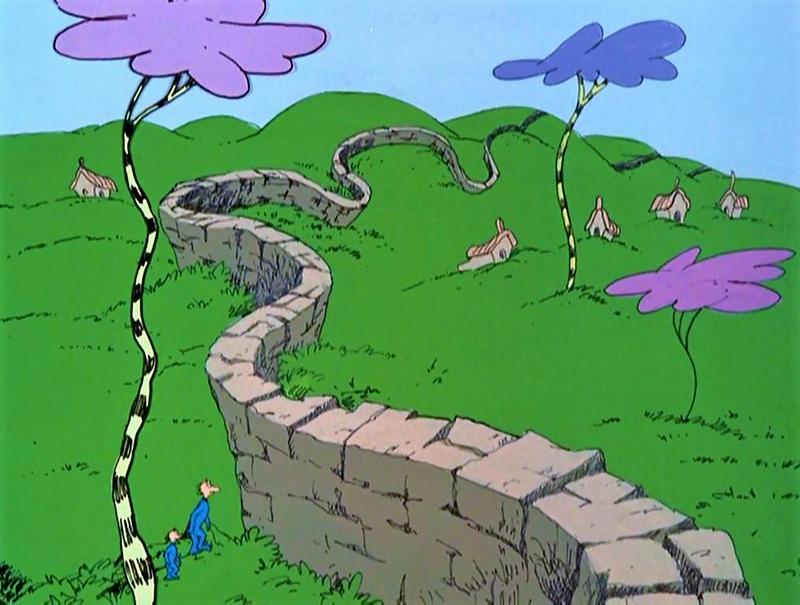The Battle Over The Butter Battle Book
By | July 18, 2022

Theodore Geisel adopted the name “Dr. Seuss” while still a student. He studied at Dartmouth College, and then at Lincoln College, Oxford. He didn’t finish his degree at Lincoln, as he left in 1927 to work as an illustrator and cartoonist for various publications, and as an illustrator for advertising campaigns. He published his first book, And to Think That I Saw It on Mulberry Street in 1937, before beginning work as an informational video producer during World War II. He also created political cartoons which critiqued everyone, from Hitler to Congress, to the phrase “America First,” a phrase that called for isolationism as violence escalated in Europe and Asia. He wrote a few other books, including Horton Hears a Who (1955) before publishing what could be considered his breakout work in 1957, The Cat in the Hat.
The Book Was Clearly About The Cold War
On January 12, 1984, Random House published Dr. Seuss’ The Butter Battle Book. In this children’s book, the narrator of the story, a Yook child whose grandfather takes him to the curving wall that separates the Yooks from the Zooks, shares the story his grandfather tells him. The grandfather explains that the difference between the two groups is that the Yooks eat their bread with the butter side up, while the Zooks eat theirs with the butter side down. The narrator’s grandfather tells a story about when he was a young patrolman, carrying a “Tough-Tufted Prickly Snick-Berry Snitch” and a Zook patrolman named VanItch slingshotted the Snitch. This begins the battle, as both sides start to create more and more powerful weapons until they finally both come up with the “Bitsy Big-Boy Boomeroo,” a small, extremely destructive red bomb. There is no defense against the bomb, so if it is dropped, they will have to stay underground so they’re not blown away. The story ends with generals of both sides standing on the wall, each waiting to drop their respective bombs. When the narrator asks, “Who’s gonna drop it? Will you or will he,” his grandfather replies “We’ll see. We will see.”

Several Of His Books Were Political
The Butter Battle Book was not Seuss’ only political book, although it may have been the most blatant. Horton Hears a Who (1954) was about anti-isolationism, Yertle the Turtle was about Hitler and anti-authoritarianism, and The Sneetches (1961) was about racism and discrimination. The Butter Battle Book was also not the only book by Seuss to face censorship because of its underlying political themes. The Lorax was banned in a community in California because of concern that it portrayed the logging industry in a bad light.

People Took Issue With It For Different Reasons
The Butter Battle Book, which was written during the Cold War era, is clearly anti-war and is more specifically a parable about arms races and the mutually assured destruction of nuclear weapons. Despite the fact that it was a New York Times Notable Book of the Year, it faced controversy. It was banned in some libraries in America and Canada after its release. Some parents were concerned that any reference to nuclear war was too scary for children. The book makes an argument for pacificism, and at least one library removed it because of its position in the arms race. Another criticism of the book was that it promoted a theme of moral equivalence and reduced the arms race to a disagreement over which side to butter bread on. The controversy did not silence the book, however, because five years after its publication, on November 13, 1989, TNT aired an animated TV special by Ralph Bakshi (of Fritz the Cat fame) that followed the book closely, including the ending, and closed with a title card that read “The End (maybe).”
Dr. Seuss' Hope For His Book
Dr. Seuss may have published a book with a clearly controversial anti-war theme, but as he said, “I don’t think my book is going to change society.” However, as he concluded, “I’m naive enough to think that society will be changed by [the] examination of ideas through books and the press and that information can prove to be greater than the dissemination of stupidity.”
